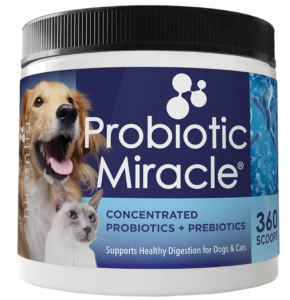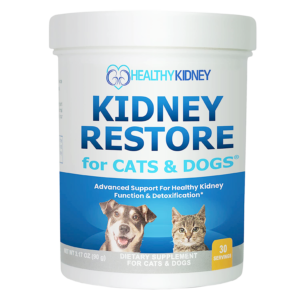The Truth About Giving Pets Human Probiotics and Yogurt
Are They Really the Best Choice?
06 Nov 2024 | Chin

Below are most common heard from pet parents when considering probiotics for pet:
“Well I just give my cat human probiotic, they are same species probiotic to that pet supplement brand and human one cheaper”
“Don’t Lactobacillus acidophilus also found in yogurt? I just give my dog the yogurt will do”
Many pet owners are looking for ways to boost their pet’s gut health, and a common trend is to give pets human probiotics or yogurt. However, despite the popularity of these choices, they may not be the best options for our furry friends. Let’s take a closer look at why human probiotics and yogurt might not be ideal for pets, focusing on important points to consider.
Differences in Gut Microbiome Between Humans and Pets
Probiotics designed for humans are tailored to our gut bacteria, which differ from those in cats and dogs. Specific probiotic strains for humans may not thrive in the pet’s gut environment or deliver the desired health benefits.
Different Health Goals
Human probiotics often target issues like digestion or immune support, but pets may need pet-specific strains for specific issues like skin health and allergies. Research shows that strains like Bifidobacterium animalis are more beneficial for dogs, while cats may benefit from Lactobacillus fermentum, which human probiotics typically don’t contain. And generally, pets respond well to Lactobacillus rhamnosus.
Ingredient Safety in Human Probiotics and Yogurt for Pets
Human probiotics and yogurt often contain sweeteners, flavorings, or binders that may not be safe for pets. Some human probiotics even contain xylitol, a common sweetener that is toxic to dogs. Just a small amount can cause severe hypoglycemia in dogs, sometimes resulting in liver failure or death. This makes it crucial to avoid any risk by choosing pet-specific probiotics that are free of harmful additives.
Right probiotic dosages
Dosages in human probiotic supplements are meant for human-sized bodies, which can lead to imbalanced doses for pets, especially smaller cats and dogs. Inadequate dosing may mean the probiotics don’t help at all, while too much could disrupt the pet’s natural gut flora, leading to side effects like bloating, gas, or diarrhea.
Lactose Intolerance and Yogurt for Pets
Dogs lack sufficient lactase, the enzyme that breaks down lactose, which is abundant in yogurt. Feeding yogurt to dogs is like asking them to read a book without glasses—they lack the necessary tools to make sense of it. This often results in digestive upset, including gas, diarrhea, or bloating.
While some cats can handle small amounts of lactose, many cats are lactose intolerant and will experience similar digestive issues as dogs. Studies estimate that about 40-60% of cats have some degree of lactose intolerance, meaning even a spoonful of yogurt can upset their stomachs.
Survival of Probiotic Bacteria in Yogurt Through the Pet’s GI Tract
Pets have a more acidic stomach environment compared to humans, especially dogs, whose stomach acid is designed to break down raw meat and bone. Probiotic bacteria in yogurt, often chosen for human digestion, may not survive these acidic conditions in pets’ GI tracts. It’s estimated that less than 10% of probiotics from yogurt may reach a dog’s intestines due to the extreme pH levels.
Conclusion
While it’s tempting to reach for human probiotics or yogurt to support our pet’s gut health, these options may not provide the intended benefits and could even pose risks. Choosing a pet-specific probiotic is a safer and more effective choice for their health and happiness. Always consult with your veterinarian before starting any supplement, as they can guide you toward products designed specifically for pets’ needs.
What we have in Petsrejoice Wellness?

Probiotic Miracle
Scientifically formulated dry powder provides stabilized probiotic cultures that are right for furbabies, and in the right amounts. Give your pet companion the benefits of probiotics without the risks of inappropriate nutrition.

Kidney Restore for Cats and Dogs
Combination of 7 probiotic species and with Niacinamide formulated for senior pets and with kidney concern for renal health and overall well being
GTF Worldwide Sdn Bhd
- No. 20-2, Plaza Danau 2, Jalan 5/109F, Taman Danau Desa, 58100 Taman Desa, Kuala Lumpur, Malaysia.
- (03) 7982 9881
- (012) 483 5523
- info@gtf.com.my
